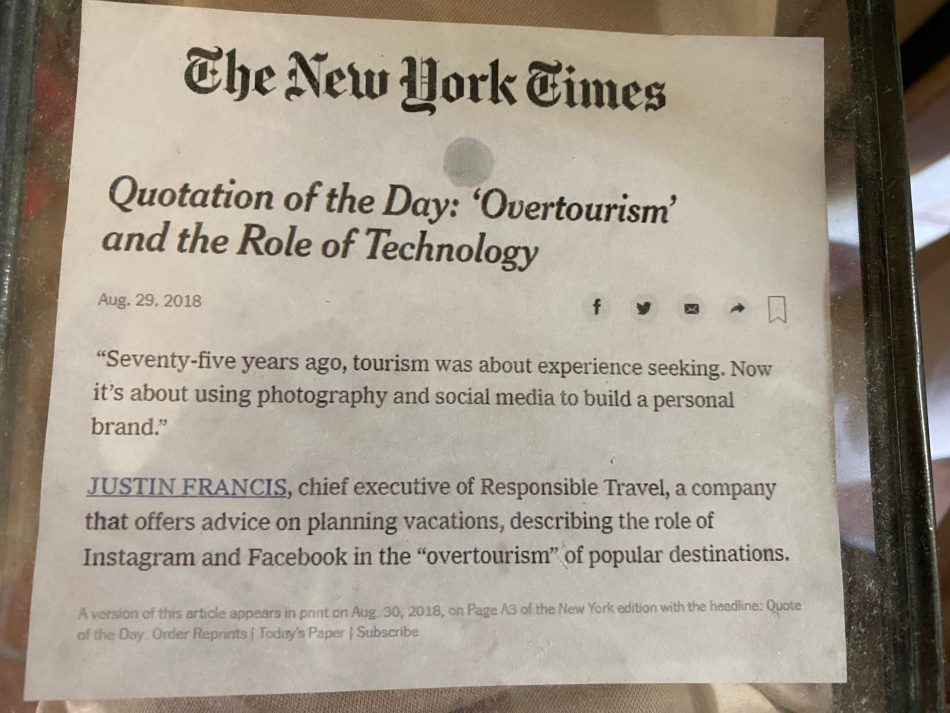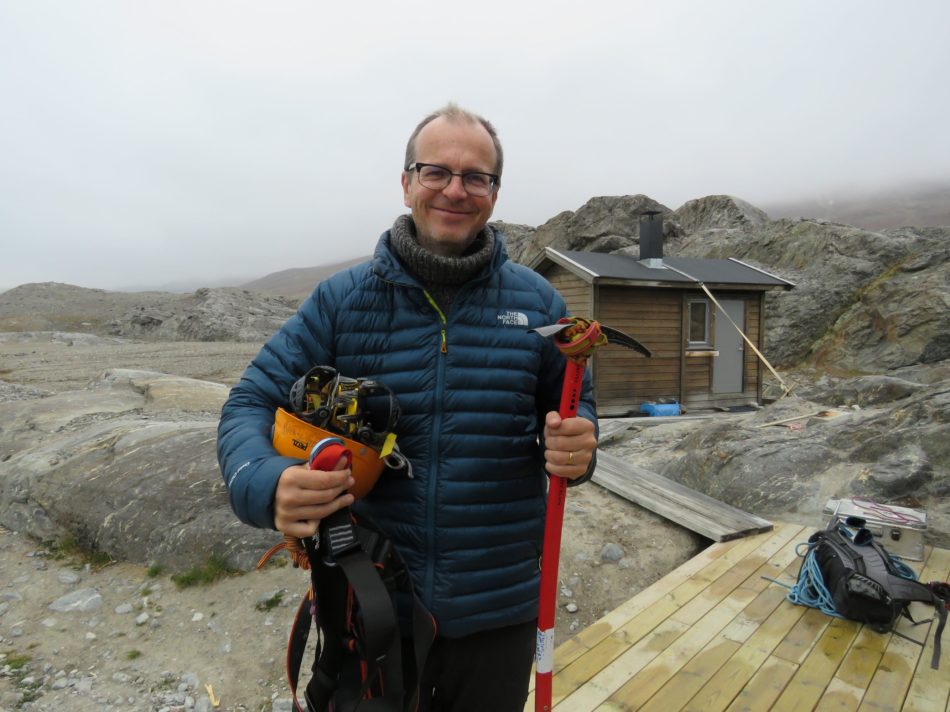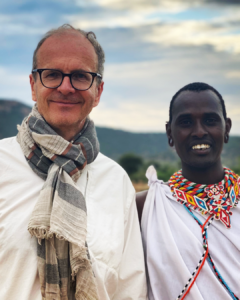Nothing like Responsible Travel had ever been tried before, so there was no route map. However, I had a great mentor from another sector, Dame Anita Roddick founder of The Body Shop, who I worked for and who became my first investor. Much of my confidence in starting an ethical business came from the success of The Body Shop and her encouragement.
I had traveled extensively and learned firsthand that traveling with respect earns you respect and ultimately leads to richer travel experiences.
The rest was mostly blind faith, and healthy dissatisfaction with the status quo (I didn’t like the practices of most of the travel industry) – a gift that most entrepreneurs have.
Q. Running a tour that supports local communities and preserves nature requires a thoughtful and comprehensive approach. Can you explain the process you follow to create a Responsible Tour and outline the criteria you prioritize the most?
At Responsible Travel, we partner with tour operators all over the world which are committed to trying to support communities and nature through tourism. We screen the partners who run the trips for us and each trip.
The three most important aspects we look at are how our partners are trying to minimize carbon emissions, protect and restore nature, and the benefits that holiday brings to local communities.
We publish the evidence from our screening process on every trip page and guest reviews – which include a question about the impacts their trip had on local people and the environment. Every review is also passed back to our holiday provider, to help them understand customers thoughts about responsible travel and local impacts.
Q. Tourism has raised multiple sustainability concerns, including carbon reduction, nature conservation, over-tourism, and ethical wildlife experiences. Navigating the responsibility of addressing these aspects during travel can be complex. How can travelers be educated about these issues, and what should they consider when making conscious travel choices?
As in other sectors, the ethically minded customer has more considerations – but in travel, they also get more rewards when they choose to travel responsibly. When you choose a trip that supports nature and local communities, you gain chances to get closer to both – which in turn leads to a more rewarding holiday experience.
To make life easier for travelers, in addition to the information on responsible travel we publish on every holiday page, we’ve also written over 700 travel guides and articles to destinations, activities, and issues which provide tips and advice for travelers on how to navigate many of the concerns you mention.
Q. How has your personal perspective on travel and its impact changed since Responsible Travel was founded, and what key moments shaped your beliefs over the years?
I love to travel, and my next trip is never far from my mind. I’ve shared a quote below, that featured as Quotation of the Day in the New York Times in 2018.

Q. How do Responsible Tours differ from other tours in terms of their impact on local communities, their environmental impact and cultural sensitivity?
Every holiday we take has positive and negative impacts locally (on people and environments) and globally (in terms of global biodiversity and contributions to climate change). We prefer to be open about this, rather than hide the facts away.
Over the last 22 years, our work has focused on learning how to collaborate with our partners to maximize positive impacts while minimizing negative ones. We share how we do this on every holiday page.
95% of our reviews are 4/5*, which shows our customers love this style of travel.
Justin with Al Gore at the business leader’s nature event
at COP26 in Glasgow, which was co-hosted by Justin.
Q. I understand that you are the Director of a safari company based in Kenya that collaborates with 550 Maasai families to offer Maasai-guided safaris in support of conservation and their community. Could you please share some memorable experiences from your work with Maasai tribes, and what challenges do you face when introducing the concept of sustainable tourism to them?
I’ve just come back from Kenya. We had to close a camp and went back to plan its re-opening. When we got there, we found one of the Maasai staff who had stayed there, mostly alone, for over two years looking after it and waiting for our return.
The Maasai are our landlords, we lease their land for tourism and conservation in areas we call Community Wildlife Conservancies and create employment opportunities.
Crucially, the conservancy management boards have representation from community leaders as well as tourism businesses, and an independent chair.
The Maasai, who have an extraordinary gift for caring for and guiding guests, value tourism enormously. As climate change has affected their ability to raise cattle, it has provided new sources of income and employment.
Q. I understand that you underwent a kidney transplant in 2017, which prevented you from traveling for four years. During this time, you started the ‘Trip for a Trip’ scheme, aimed at providing opportunities for disadvantaged children who cannot travel. Could you share the pivotal moment that inspired this meaningful endeavor?
When I had kidney failure I couldn’t travel, not even a few miles from home. I missed it and realized that while I was lucky and had travelled extensively, some disadvantaged children have never had the opportunity to leave their immediate surroundings. I wanted to change that.
Q. In modern travel, it is easy to get caught up in the pursuit of pleasure and forget about the importance of responsible travel. What tips do you have for travelers to strike a balance between enjoying their holidays and ensuring that their travel choices contribute positively to the community, environmental sustainability, and the avoidance of animal cruelty?
More and more travelers are looking for value for experience. That plays into responsible tourism’s hand. When we plan our holidays in such a way that they are supporting local people and looking after nature, we can get closer to both.
There is never a need to strike a balance between enjoyment and a holiday that does good. More responsible holidays are more enjoyable. They give us access to the hugely enriching travel experiences that we crave – and that most people want to share via their social networks.
Q. What are your messages to our readers?
Take care and enjoy your travels. It’s a privilege to visit the world’s most beautiful and fragile places – and this comes with a responsibility to care for them. I hope to see you out on the road somewhere.
Biography:
Justin Francis is an activist and social entrepreneur, and lately advisor to the UK Government as the Nature Lead for the Council for Sustainable Business.
He is the co-founder and CEO of Responsible Travel (founded in 2001), an activist travel company, selling holidays from around the world and publishing online travel guides and responsible tourism related content.
In 2004, he founded The World Responsible Tourism Awards, which are now run by The World Travel Market.
All photographs credit: Responsible Travel












Leave a Reply